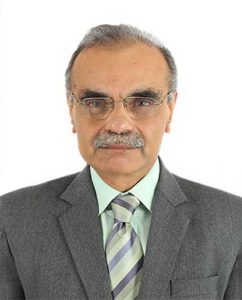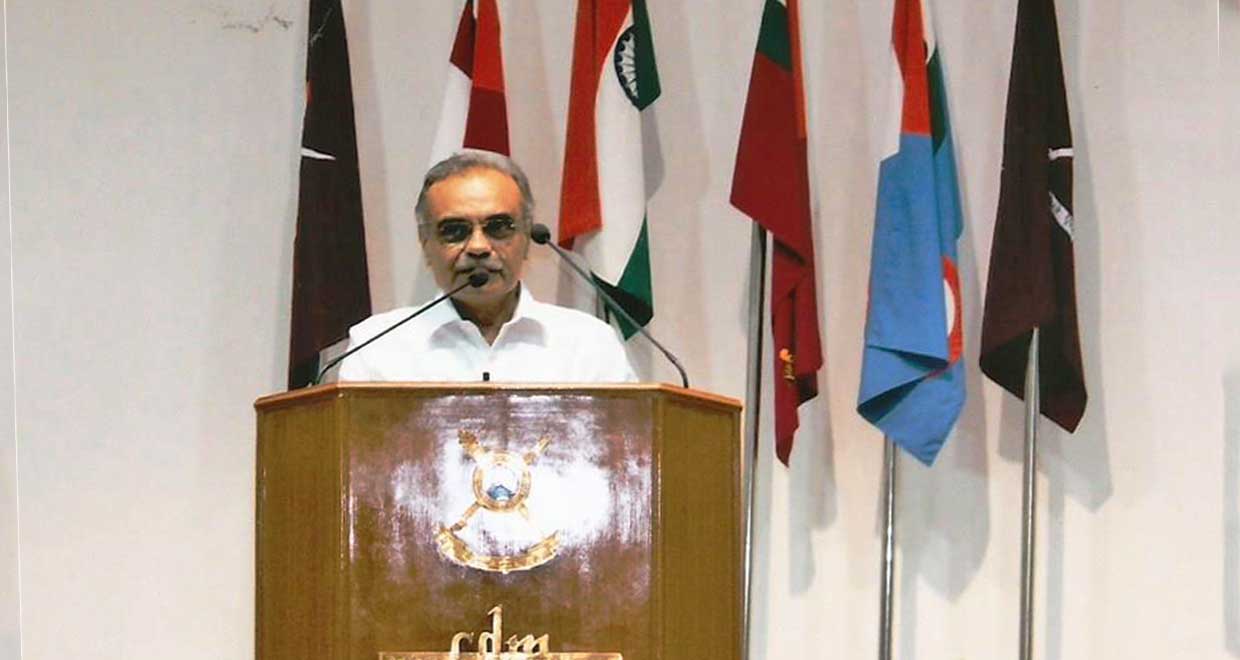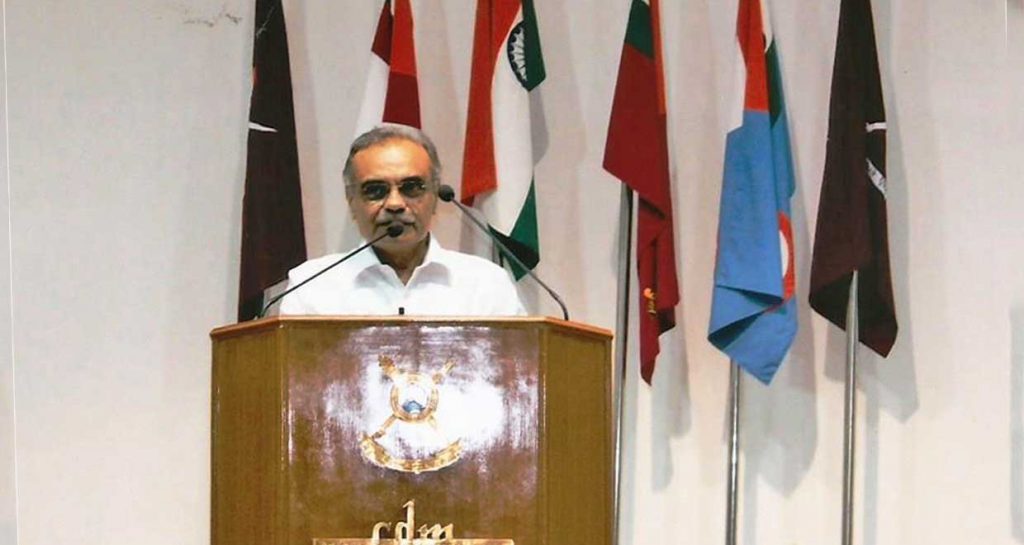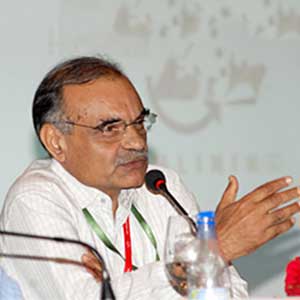Amit Cowshish, served the Indian Defence Accounts Service in various capacities and retired in 2012. Having studied M.A. and M.Phil in Political Science from the Jawaharlal Nehru University, and qualified in Law from Delhi University, Amit had also received a Diploma in Alternative Dispute Resolution from the Indian Law Institute.
 Amit went on to serve on deputation with the Ministry of Defence, first as Under Secretary and later as Additional Financial Advisor & Joint Secretary and Financial Advisor (Acquisition) & Additional Secretary. He also served as Commissioner for Departmental Inquiries on deputation with the Central Vigilance Commission. He is a presently a Distinguished Fellow with the Indian Institute for Defence Studies and Analyses, and is presently a Partner with Dua Associates, Advocates and Solicitors.
Amit went on to serve on deputation with the Ministry of Defence, first as Under Secretary and later as Additional Financial Advisor & Joint Secretary and Financial Advisor (Acquisition) & Additional Secretary. He also served as Commissioner for Departmental Inquiries on deputation with the Central Vigilance Commission. He is a presently a Distinguished Fellow with the Indian Institute for Defence Studies and Analyses, and is presently a Partner with Dua Associates, Advocates and Solicitors.
In this interview, he talks to us about:
- Working in the arena of Public Administration;
- His work with the Defence Accounts Department;
- His responsibilities with the Minsitry of Defence; and
- His post-retirement transition to a life in corporate law.
What influenced you to choose law as your profession? Where did you pursue the same?
Law runs in the family. My father was a lawyer, and so was his father. Both my daughters are lawyers, as well. I had great admiration for the profession right from my early days in school. Destiny took me elsewhere, but after retirement I have returned to the fold, as it were.
I studied law at the evening centre of the Delhi University while I was in service.
You hold a pre-degree diploma in the Russian and Persian languages. How did you develop an interest in learning languages?
Apart from Hindi and English, we were taught Punjabi at school. I picked up Urdu as it was the language used by a large segment of the local population, and used in the courts. That got me interested in languages. So, when I got an opportunity, I decided to learn a couple of foreign languages as well.
What steered you into the area of public administration?
These are institutes where serving government officers are sent for mid-career courses. I was fortunate to have been sent for the courses run by IIPA (Indian Institute of Public Administration) and NDC (National Defence College).
Do tell us about your journey as part of the Defence Accounts Department.
I got the opportunity to serve at different stations; travelled far and wide within India; gained vast experience in financial management in defence.
What were your main responsibilities as the Controller of Defence Accounts?
Controllers of Defence Accounts are responsible for various functions related to accounting, payment, audit and financial advice in relation to the military establishments located within the jurisdiction of the organizations they head.
What was the biggest challenge you faced in your role?
Being a finance person is, in itself, the biggest challenge in any organization!
What were the different tasks involved in the posts of an Under Secretary, Additional Financial Advisor & Joint Secretary, and Financial Advisor (Acquisition) & Additional Secretary?
As Under Secretary, I was responsible for matters related to pension policy for the armed forces. As Additional Financial Advisor, my work was related to financial matters concerning the organizations assigned to me as well as defence planning and budget.
As Financial Advisor (Acquisition), I was associated with all capital acquisitions for the armed forces and the Indian Coast Guard.
How did you come to be associated you with the drafting of the Defence Procurement Manual 2009? Did having a legal qualification help with the same?
This task was assigned to me, probably because at that point of time I was associated with revenue procurements. Yes, my legal qualifications did help.
How is it that you came to join Dua Associates as a Partner?
I joined Dua Associates after my retirement from the Indian Defense Accounts Service in 2012, to keep myself engaged in meaningful work.
Was it difficult to adapt to a corporate firm after having worked for long in public administration?
The transition was smooth; I did not face any difficulty.
Defence being a very niche sector what would be your advice to young lawyers working in defence matters?
There is not much of a difference as regards keeping abreast of the latest developments whether one is handling the defence sector or any other sector. To make a beginning, one has to develop general familiarity with the subject, study the existing policies and procedures, follow the developments reported in the media and law journals, keep an eye on the official announcements, and pay special attention to the judgements concerning one’s areas of interest. Attending seminars and other events related to defence matters also helps.
Do you work only on defence related projects at Dua?
No, the work I do is not confined to defence related projects.
Would you consider taking a few lectures on Defence law and material procurement if invited?
Certain statutes like the Army Act, the Air Force Act, the Navy Act and the Armed Forces (Special Powers) Act are specific to the armed forces. There are other statues, rules and regulations like the Industries (Development and Regulation) Act, the Companies Act, and policies concerning FDI and exports, etc., which also have a bearing on legal issues concerning the defence sector. However, there is no specific law concerning defence procurement/acquisition by the Ministry of Defence. Defence purchases are primarily governed by the Defence Procurement Procedure and Defence Procurement Manual.
I would be happy to talk on defence procurement policies and procedures of the Indian Ministry of Defence.
Being a very niche sector what would be your advice to young lawyers working in defence matters?
Broadly, legal professionals can contribute with regard to service and contractual matters. It is important that those who are interested in these areas not only keep themselves updated about the applicable laws, rules and procedures, but also acquire a good understanding of the organisational ethos of the armed forces, coast guard, border roads, etc., as well as acquaint themselves with the functioning of the defence industry.




























